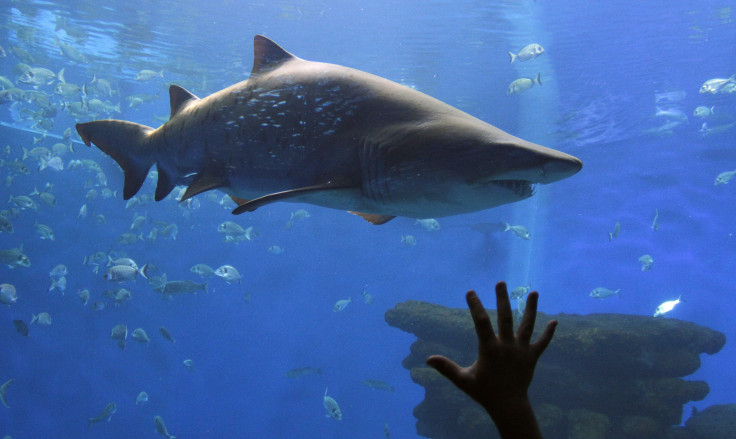'Didn't Even Flinch': Tiger Sharks Aren't Scared Of Hurricanes

People evacuate when hurricanes come, but do aquatic predators like large sharks also leave an area during major storms? Researchers found that some shark species also evacuate when hurricanes come, but tiger sharks stand their ground.
For their study, which was recently published in the Estuarine, Coastal and Shelf Science journal, a team of researchers looked at the activity and distribution of four large shark species in response to two major hurricane events. Specifically, they looked at tag data from tiger sharks, nurse sharks, bull sharks and great hammerhead sharks before, during and after Hurricane Matthew in 2016 and Hurricane Irma in 2017, the news release from the University of Miami's (UM) Rosenstiel School noted.
"We tested whether sharks would evacuate shallow coastal habitats (and thus exit the acoustic arrays) during the hurricanes and exhibit comparable size of activity spaces pre- and post-storms, as has been previously found for smaller (50–150 cm fork length) sharks elsewhere," the researchers wrote.
Interestingly, data showed that great hammerhead sharks, bull sharks and most nurse sharks did evacuate from inshore shallow waters in response to Hurricane Irma, UM Rosenstiel School noted.
According to the researchers, most of the sharks that were present in the array could not be detected anymore when the eye of the storm passed "140 km to the west," although two nurse sharks "remained at receivers near Miami."
On the other hand, tiger sharks had a rather different response. They didn't evacuate even during Hurricane Matthew's direct hit and even doubled in number right after the storm.
"Daily detections of tagged tiger sharks within the array were consistent before and during the hurricane. Immediately following the storm, daily tiger shark detections approximately double," the researchers wrote.
"I was amazed to see that big tiger sharks didn't evacuate even as the eye of the hurricane was bearing down on them, it was as if they didn't even flinch," Neil Hammerschlag, study co-author and research associate professor at UM Rosenstiel School, said in the university news release. "We suspect tiger sharks were probably taking advantage of all the new scavenging opportunities from dead animals that were churned up in the storm."
The behavioral effects of tropical storms on large sharks hadn't been evaluated in the past, the researchers said. Their study showed that unlike smaller sharks, which evacuate from their shallow-water habitats when storms come, larger sharks have different responses depending on the species and their location.

Photo: Getty Images






